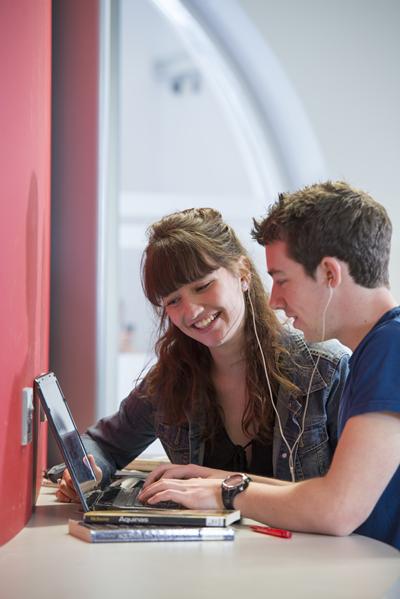Humanities at Southampton offers a range of innovative flexible learning options, so you can tailor your degree to suit your specific needs and interests.

Combined Honours
Combined Honours programmes give students the opportunity to study two areas of interest throughout their undergraduate degree. You may be keen to continue with subjects you have enjoyed at college level, or you might be interested in adding a new subject area to your existing study experiences. For more information about available options, visit the Combined Honours webpage.
Major/Minor
All Humanities students have the option to study a minor subject alongside their main course, so you graduate with, for example, BA Archaeology with American Studies. Minor subject areas include Creative Writing, Music, Philosophy, Politics and many others. Click here for more information.
Curriculum Innovation Programme
Interdisciplinary modules provide you with the opportunity to broaden your learning. Each module explores key contemporary subjects, such as sustainability or intercultural communication, from the perspective of different disciplines. You work with students from other subjects, learn through innovative methods, such as group work and social media, and are assessed in new ways, such as student-led teaching and presentations. For more information, see the Curriculum Innovation webpage.
Learning a Language
The Southampton Language Opportunity provides you with the opportunity to study a language free of charge, alongside your degree programme. The scheme is funded by the Southampton Opportunity and managed by Modern Languages and Linguistics. The classes offer no formal qualification or provide any credit, but are perfect for those wanting to start a new language or polish up on previous skills. For more information click here.
Study Abroad
Spending part of your degree in a new culture will give you knowledge, transferable skills and an international outlook - all of which are highly valued by employers. We have opportunities to study abroad for an academic year, a semester, or a month-long summer school at many universities around the world, including in Europe, Asia, North and South America. See our Study Abroad page for more information.
Part Time Study
At Humanities all our degree programmes can be studied part-time.
For some of our students, full-time study isn't a practical possibility for professional, financial or personal reasons. Others have made a deliberate choice to take the less pressurised part-time route to a degree - for example embarking on a course after retirement or returning to academic study after a lengthy time away from education.
Full-time undergraduate degrees are usually completed in three years (or four, for language degrees involving a year abroad). Part-time students cover the same content, but over a longer time-scale, between four (or five for language degrees) and eight years.
The most common arrangement is to take half the number of modules per semester taken by full-time students. However, you can complete the degree course more quickly by changing to full-time after a minimum period of study (usually two years) on a part-time basis; this path can be particularly suitable for parents of young children.
When are courses run?
The academic year is divided into two semesters, spread over three terms. Part-time students take the same classes as full-time students, timetabled Monday to Friday, 9am - 6pm. Your chosen discipline may be able to give you some advance indication of when lectures will be timetabled - however the timetable is usually made available a few weeks in advance of term.
How much work is involved?
Degree programmes are made up of smaller modules; most individual courses are single or double modules. Full-time students normally take eight modules a year, part-time students usually four. Full-time students are expected to work about 40 hours a week during term on their studies; as such you should allow for 20 hours.
Each single module will take roughly ten hours a week, usually divided between two hours' contact time (lectures, seminars, etc.) and eight hours for private study and writing; you will also be expected to do extensive reading during vacations. You'll normally have to write essays to fixed deadlines during the year; and there is an examination period at the end of each semester.
Lifelong Learning
In addition to part-time degree programmes, Humanities also offers a selection of lunchtime, evening and weekend courses and cultural events available to the wider community. Visit the Humanities Lifelong Learning website to find out more.